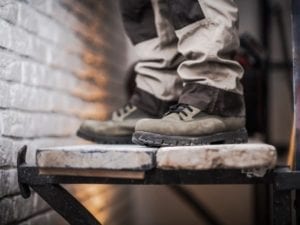Construction remains a male-dominated industry across the globe, and South Africa is certainly no exception.
The fact that women comprise only 11% of the country’s total construction workforce, is largely driven by stereotypes which stigmatise the employment of women in the industry. This needs to change, according to Databuild CEO Morag Evans. “While it is true that a large portion of construction work is physically challenging, this does not mean that women can’t or don’t want to work in construction,” she says. “There is so much more to the industry than the loading and unloading of heavy building materials, erecting scaffolding and removing debris from a building site. Numerous other roles exist to which women can aspire, such as procurement, project management, health and safety, surveying and estimating, to mention a few. “Consequently, it’s time to take decisive steps to attract women to the industry.” To boost diversity in the sector, Evans proposes the implementation of initiatives and programmes that educate women on all the potential career opportunities available. This is in line with a recent statement by President Cyril Ramaphosa in which he called on business, labour and civil society to ensure that more economic opportunities are made available to women. “Construction companies should work closely with schools and tertiary education institutions to drive awareness that construction is an appealing and worthwhile career option for women.“Additionally, training and mentorship programmes will help to equip women with the skill sets they need to place them on a strong career path.”
Evans believes that the inclusion of more women will help to alleviate the critical skills shortage that currently plagues the construction industry. “Rather than ‘importing’ these skills from other countries we should focus on placing women in these roles,” she says. Strong business case Numerous studies point to a strong business case for gender diversity in business, including construction, Evans continues. She cites a report <https://www.mckinsey.com/featured-insights/diversity-and-inclusion/diversity-wins-how-inclusion-matters> published by management consulting company McKinsey & Co in 2020, which reveals that gender-diverse companies are 25 per cent more likely to achieve above-average profitability than their less diverse counterparts. “Simply put, a more gender-inclusive construction workforce makes good business sense,” Evans concludes. “Men and women bring different perspective and skills to the workplace and greater representation of women will not only substantially benefit the industry, but also drive growth in the larger economy.”






